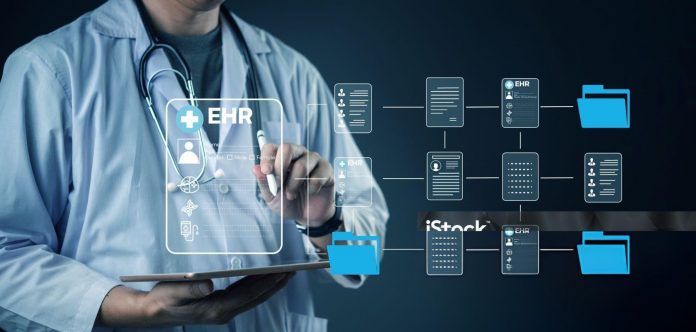Complexities that have plagued financial management in healthcare include the complex billing systems, changing insurance claims requirements, and strict regulatory compliance. By 2025, these issues will be reinforced by the high rates of technological change and growing patient bills. A combination of these factors has rendered the conventional manual processes more and more unworkable. Automation has become a revolutionary entry point, with real-time feedback and optimization of financial processes.
The article discusses how automation is transforming financial management in healthcare, both with regard to the challenges in the sector and how it is enabling a more effective and patient-centered financial ecosystem.
Role of Automation in Healthcare Financial Management
Healthcare finance automation is the concept of handling financial processes with the use of software, algorithms, and digital tools with the minimum involvement of the human factor. It includes a wide range of technologies such as electronic billing systems, automation platforms for accounting, and digital payment solutions. RPA is also commonly a repetitive task that business enterprises use to automate tasks such as checking claims, processing invoices, and data entry. Moreover, AI-based analytics can detect anomalies, anticipate cash flow challenges, and deliver real-time financial information on actionable insights about healthcare administrators.
Benefits of Automating Financial Workflows
Accuracy and Error Reduction
Billing and accounting processes have manual data entry, which is likely to be inaccurate and lead to delays in reimbursements and compliance. Automation makes sure that all calculations, claim formulations, and account reconciliations are done without errors, as human errors are minimized. This saves time as well as avoids expensive arguments with insurers and patients.
Operational Efficiency
Healthcare organizations can also save a lot of administrative work by automating routine financial work. Tasks that used to take hours, e.g., processing claims made by the insurance company or reconciling accounts, can be done in a few minutes. This productivity enables employees to concentrate on more productive tasks, including patient interaction and financial planning.
Compliance and Reporting
Finance in healthcare is regulated greatly, and standards are stringent in record-keeping and reporting. Automated systems are beneficial to ensure records are proper, maintain compliance, and produce audit-ready reports without any trouble. The timely regulation changes by automation also assist organizations in responding to new changes in a timely manner with minimal risk of punishment.
Enhanced Decision-Making
Automation offers real-time information about revenue cycles, expenses, and financial performance. These understandings enable healthcare administrators to make informed decisions on budgeting, allocation of resources, and their investment plans. To illustrate, predictive analytics can help identify slowed payments or detect claims denial trends, and take proactive measures that lead to financial health improvement.
Electronic Billing Systems in Healthcare
Electronic billing systems streamline the whole billing process, such as the creation of invoices, filing insurance claims, and tracking the payment status. Advanced E-billing systems can be connected to Electronic Health Records (EHR) and practice management systems, which ensures the use of correct patient data and billing codes. This will minimise the possibility of rejection of claims and delays, which will offer a smooth revenue cycle.
Benefits of Electronic Billing
- Quick Reimbursement: The claims are sent automatically to the insurers, and the payment time is also minimized.
- Correction of Errors: Checks will be automated to check that the billing codes, patient data, and insurance information are correct to reduce claims denials.
- Better Cash Flows: The healthcare providers have a more predictable cash flow with better speed and a reduced number of errors.
- Improved Patient Experience: Patients can get precise and clear bills in a timely manner, which makes them more transparent and satisfied.
Integration with Financial Management
E-billing programs in modern practice frequently have analytics dashboards, which give real-time information about the outstanding invoice, payment patterns, and claim statuses. This knowledge enables financial managers to make key decisions, foresee cash flow issues, and collect revenue effectively.
Accounting Automation in Healthcare
Accounting automation involves the use of software to take care of activities like ledger balancing, expense tracking, accounts payable and receivable, as well as financial reporting. Robotic Process Automation (RPA) and AI tools can sort the transactions automatically, reconcile them, and identify discrepancies. Connecting to other systems, such as EHRs and billing systems, will make the financial data accurate and up-to-date on the enterprise level.
Benefits of Accounting Automation
- Reduced Manual Errors: Automated processes minimize human mistakes in data entry and calculations.
- Time Savings: Tasks that once took hours or days can be completed in minutes, freeing staff for higher-value activities.
- Real-Time Insights: Financial dashboards provide up-to-date views of revenue, expenses, and cash flow, supporting informed decision-making.
- Regulatory Compliance: Automated tracking and reporting ensure adherence to healthcare regulations, reducing the risk of penalties.
With the adoption of accounting automation, healthcare providers will be able to automate not only the internal processes but also enhance financial planning and overall operational efficiency.
Digital Payment Systems in Healthcare
The digital payment systems enable patients to pay bills online, pay through mobile applications, and/or through contactless payments within hospitals and clinics. These systems are combined with electronic billing and accounting software, which means that they will automatically keep track of payments and reconcile and record them. There are also some platforms that facilitate recurring payments, installments, and automatic reminders, making the payment process easier for the patient and lessening the load on staff.
Benefits of Digital Payments
- Convenience and Accessibility: Patients can pay anytime, anywhere, using multiple payment options.
- Faster Cash Flow: Automated recording and reconciliation speed up revenue collection.
- Improved Accuracy: Digital systems reduce errors in recording payments and matching them to invoices.
- Enhanced Patient Experience: Clear payment portals, flexible options, and instant confirmations increase satisfaction.
With the help of digital payment and other automated financial mechanisms, healthcare organizations can have a full picture of the revenue streams and a real-time perspective on the financial management, and improve the patient experience.
Conclusion
The automation is quickly changing financial management in the healthcare sector to solve the problems that have been faced over an extended period of time, such as issues of complicated billing, manual accounting, and delayed payments. Healthcare organizations can automate their accounting, forms of electronic billing, and digital payment systems to automate the organization, minimize the number of errors, and optimize the cash flow. Informed decision-making, allocation optimization of resources, and compliance with regulators are all capabilities of real-time insights of these automated systems in the hands of administrators.
For instance, modern medical billing platforms not only speed up claim submissions but also integrate with accounting and payment systems, creating a cohesive financial ecosystem.















